If you love animals, it’s hard to deny the lure of keeping just about any type of animal as a pet. Intelligent critters like crows tend to get moved to the top of the list. Many people try to befriend the crows that roost near their homes or in the local park, after all. Since they seem to make a good “friend” in this manner, it seems reasonable to think that a crow would also make a great pet.
Of course, reality and our desires aren’t always in line with each other, so do crows make good pets? The short answer is no, crows do not make good pets. If you want to have a pet crow, you need to know these seven things first.

Are Crows Good Pets?
You’ve certainly seen crows out and about in the world, flying in the skies, roosting on nearby homes, or even scavenging food in the park. But you’ve probably never seen a crow in captivity, and there are good reasons for this.
The reality is that crows don’t make good pets under any circumstances. They’re just not built for life in captivity. Crows are too intelligent to be cooped up, and they need a lot of room to move around. In captivity, a crow’s life expectancy is significantly reduced versus living in the wild. They can face health problems and many mental concerns, but that’s just the start of the issues that can arise when you attempt to keep a crow as a pet.
The 7 Things You Must Know About Crows as Pets
1. Crows Are Wild Animals
There are no domesticated crows, so if you’re planning on keeping a crow as a pet, you’ll have to capture one in the wild. This creates an obvious moral dilemma. Think about it this way. Would you want someone to capture you from your free life in the world and put you in a cage that will be your entire world for the rest of your days? Probably not, right? It’s really not any different for a crow.
In the wild, they have full access to the entire world and wide-open skies, which you definitely can’t provide in your home. It’s cruel to remove a crow from the wild and even worse to coop them up in a cage.
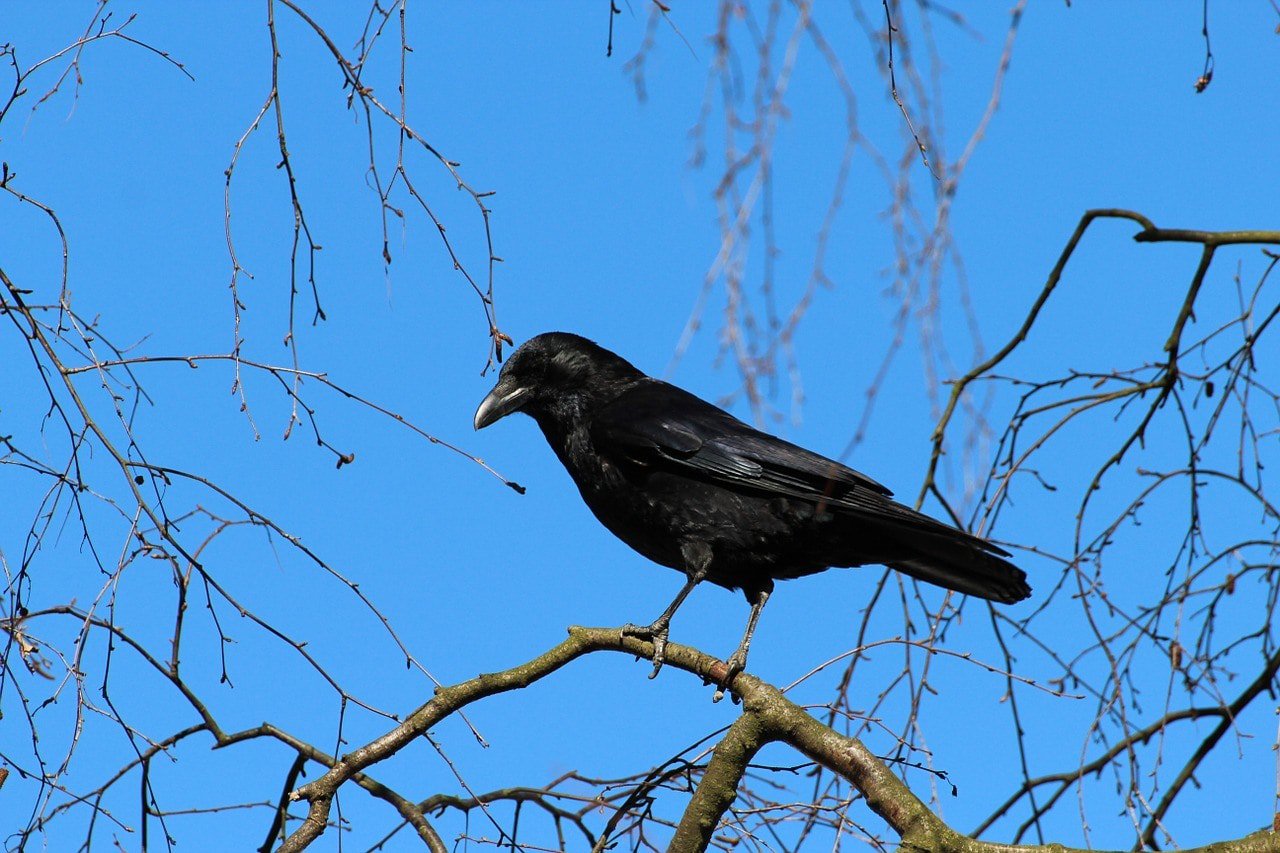
2. They Need to Sunbathe
Crows love to sunbathe, but as it turns out, it’s not just for pleasure. Like humans, crows need vitamin D, and the best way for them to get it is by absorbing it from the sun during sunbathing.1 Granted, you could keep a crow’s cage by the window so they still get sunlight, but it’s not really the same, so your crow will likely end up being vitamin D deficient, which can cause health problems for the bird.
3. It’s Illegal in Many Countries
Crows are migratory birds. In America, they’re protected by the Migratory Bird Treaty Act, which makes it illegal to capture, kill, trade, sell, or transport any migratory bird, including crows. Granted, there are special exemptions that can be authorized by the Department of Interior U.S. Fish and Wildlife Service, but these exceptions are few and far between, and you certainly won’t be granted one to keep a pet crow. This means that attempting to domesticate a crow is highly illegal; grounds for felony federal charges that could see you locked up behind bars and facing some major fines!
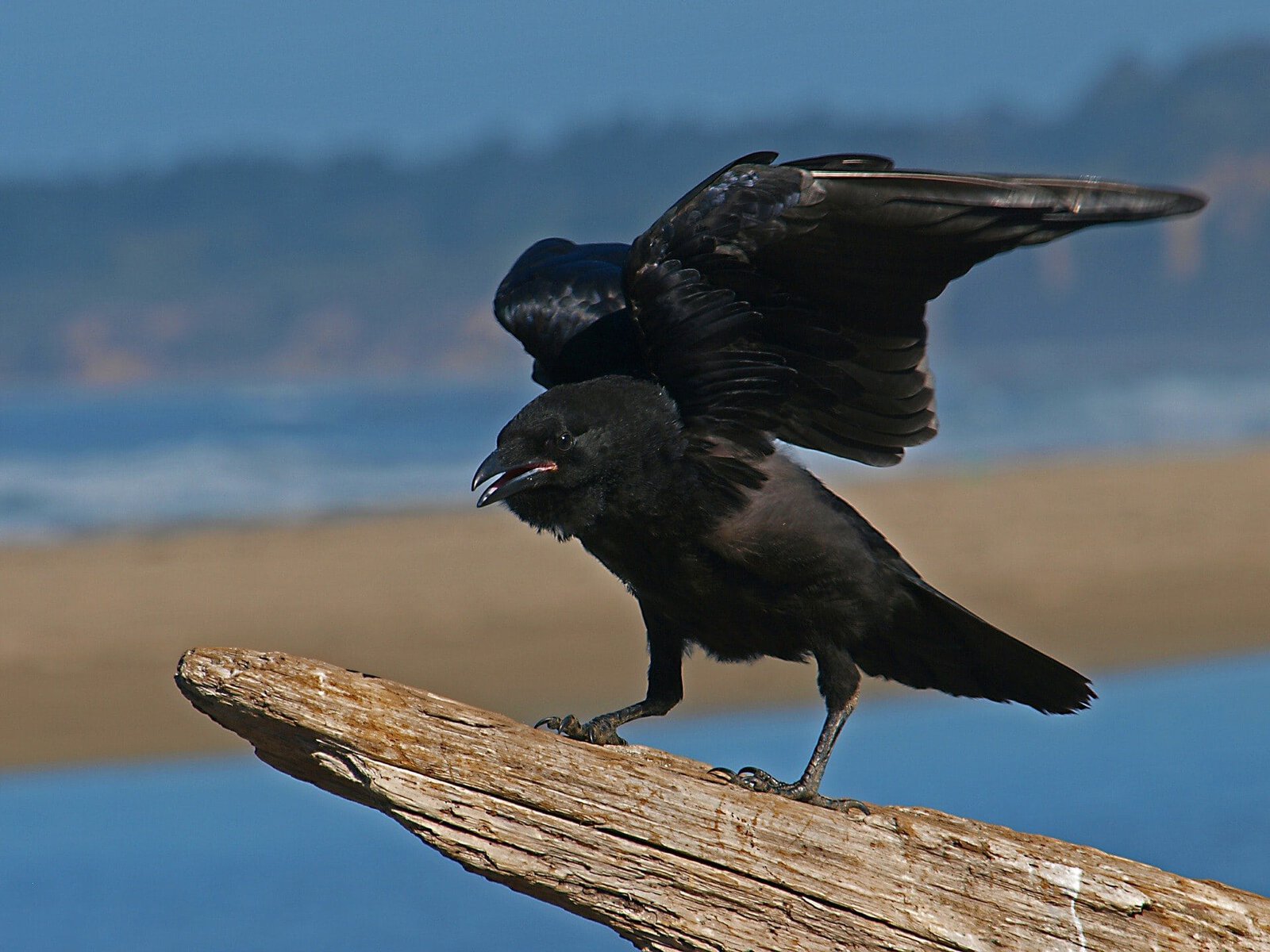
4. Crows Are Social Birds
Imagine if someone stole you away from your family and kept you locked away in solitude until you died. You’d be incredibly lonely and would almost certainly suffer ill mental health as a result. Crows are also social creatures. If you separate a crow from its family, you’ll be dooming it to a life of solitude and depression.
5. They Are Unhappy in Captivity
Crows are highly intelligent creatures. They need to exercise their minds as much as their bodies. It’s said that attempting to keep a crow is like caring for a 2-year-old child who will never grow up. But it’s worse with a crow because if this bird doesn’t get the opportunity to use its intellect, think things through, and problem-solve, it will suffer detrimental mental health effects. For this reason, among others, crows tend to be extremely unhappy when kept in captivity.
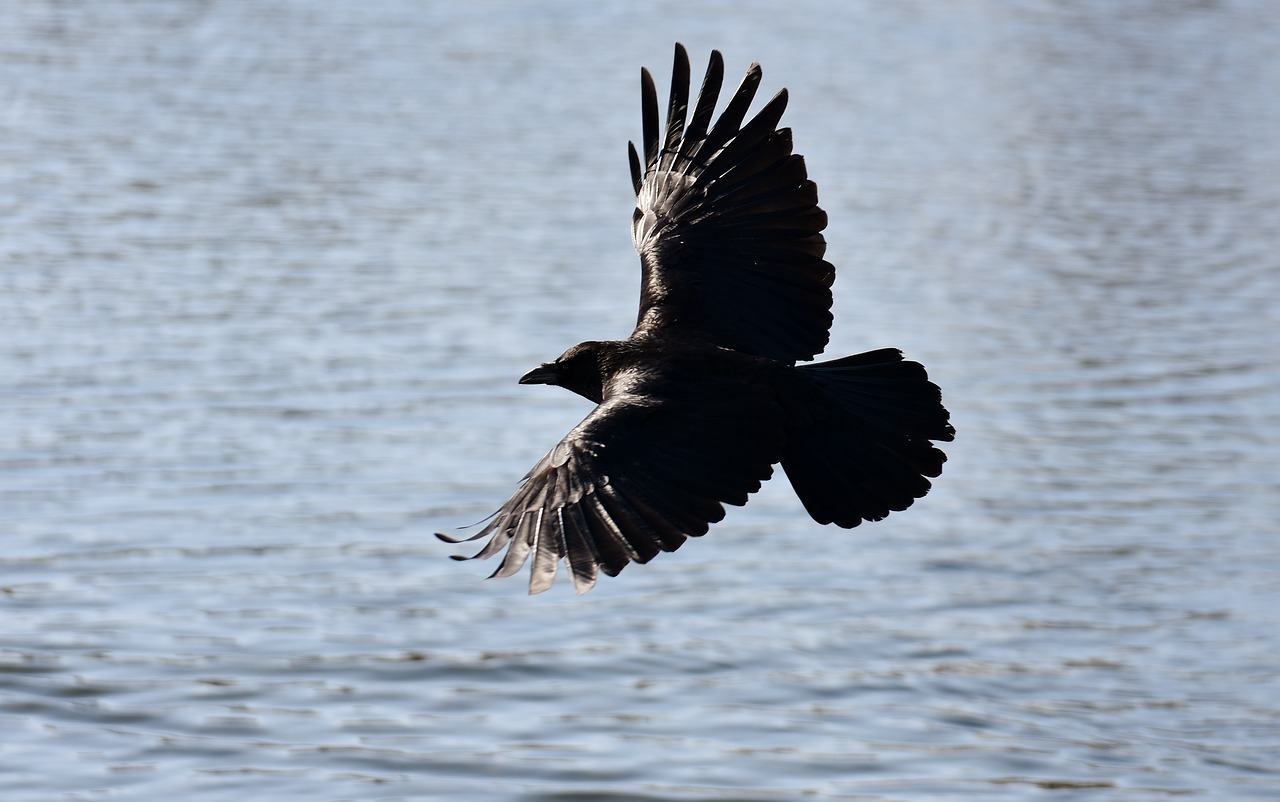
6. They Would Need a Massive Cage
Obviously, crows are birds and most birds fly. It’s unhealthy for a crow to be stuck on the ground or on a perch with no way to achieve flight. Your crow would have to spend at least a few hours a day flying, which would require a downright massive cage! You’d need an aviary to keep a single crow, but few people have that much space to devote to such things, not to mention the expense of building one.
7. Medical Care Is Near Impossible
Since keeping a crow is highly illegal, when it needs medical care, which will be necessary at some point, you’ll have nowhere to get it. Veterinarians won’t be of any use to you since they’ll have to report you and your crow to the authorities. So, you’ll have to take care of all your crow’s medical concerns yourself. How much do you know about avian health? Probably not enough to take care of a pet crow for its entire life without any professional help.

What If You Find an Injured or Abandoned Crow?
We’ve established that keeping a crow as a pet is a terrible idea. But what if you find an injured or abandoned crow that needs help? Is it then okay to take the crow in and provide care? Absolutely not. If you attempt to help the crow, it might imprint with you, meaning that it could accept you as a parent, putting it at a disadvantage for life. It’s for this reason that wildlife experts hide their faces when working with baby crows. If a crow imprints with a human, they could begin to see people as help and even approach them at random, which could be inherently dangerous for the crow.
Even if you find an injured crow, you should not approach, touch, or keep the animal. Instead, call Wildlife Protective Services. They’re professionals at dealing with exactly these types of situations and will be far better equipped to handle it than you are. Plus, you’ll be saving yourself an investigation that would likely result from taking the crow, which is illegal on a federal level.
What to Do Instead of Keeping Crows for Pets
You love crows, and now we’ve dashed your hopes of keeping one as a pet. So, what’s a crow lover to do at this point? Don’t worry, you’re not out of options yet. In fact, you have three great choices, depending on how much time you want to invest into crow friendships and care.
1. Befriend Your Local Crows
Crows are known to be friendly, social creatures. It’s not at all uncommon for people to befriend entire flocks of crows that live near them. By offering crows healthy foods such as dried pet foods, peanuts, and more, you can begin to build trust with the animals over time. It takes repeated feeding, and you have to make sure that it’s legal to do this where you live, but after a while, the crows will know and trust you, and a friendship can begin to form.
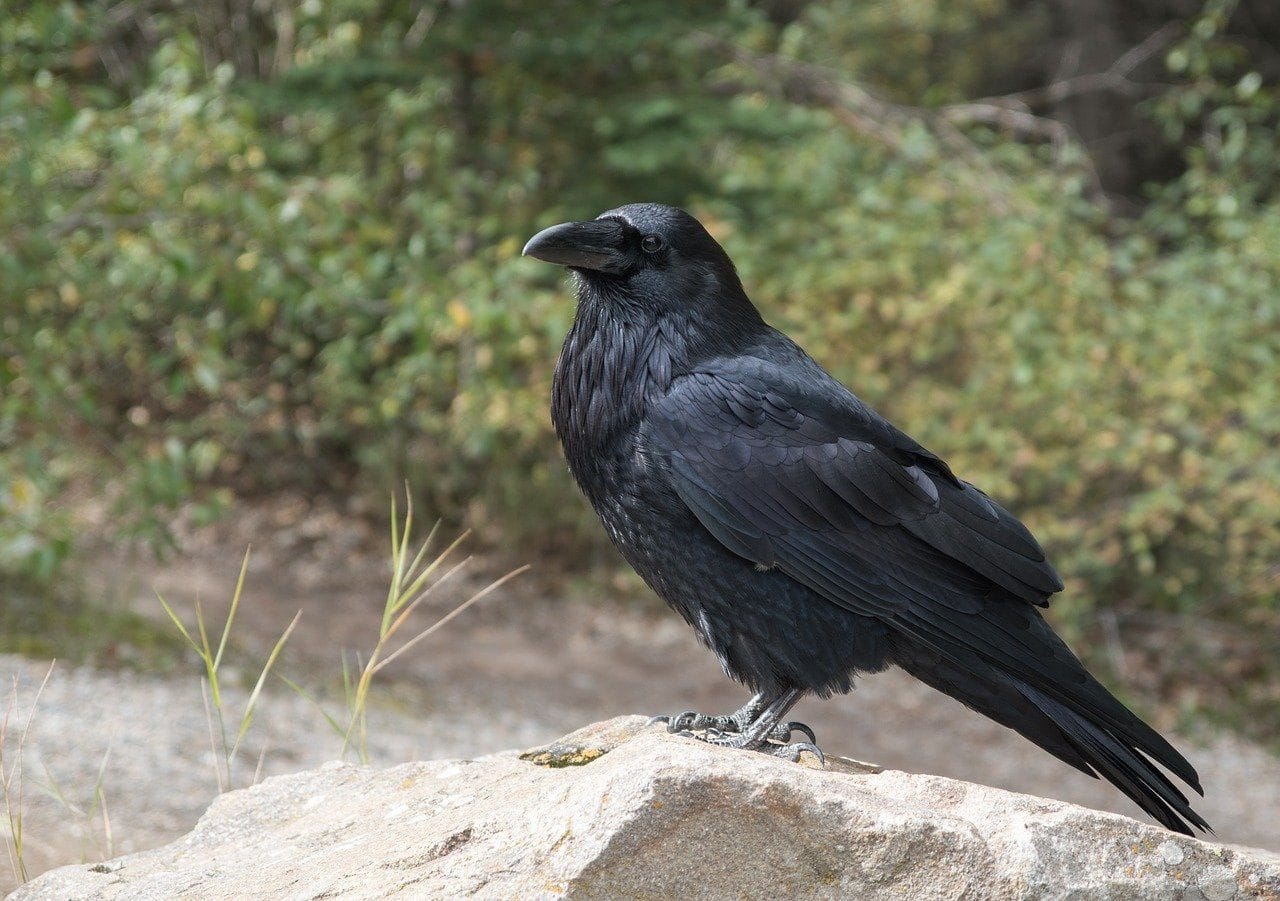
2. Volunteer With Wildlife Protection Services
Wildlife Protection Services are based in most major jurisdictions. They’re the ones who handle the wild animals that need help. If you volunteer with your local chapter, you’ll get the chance to work with wildlife that they’re helping to rescue. Granted, you won’t always get to work with crows, but when they do come in, you’ll be in a great position to get to interact with them.
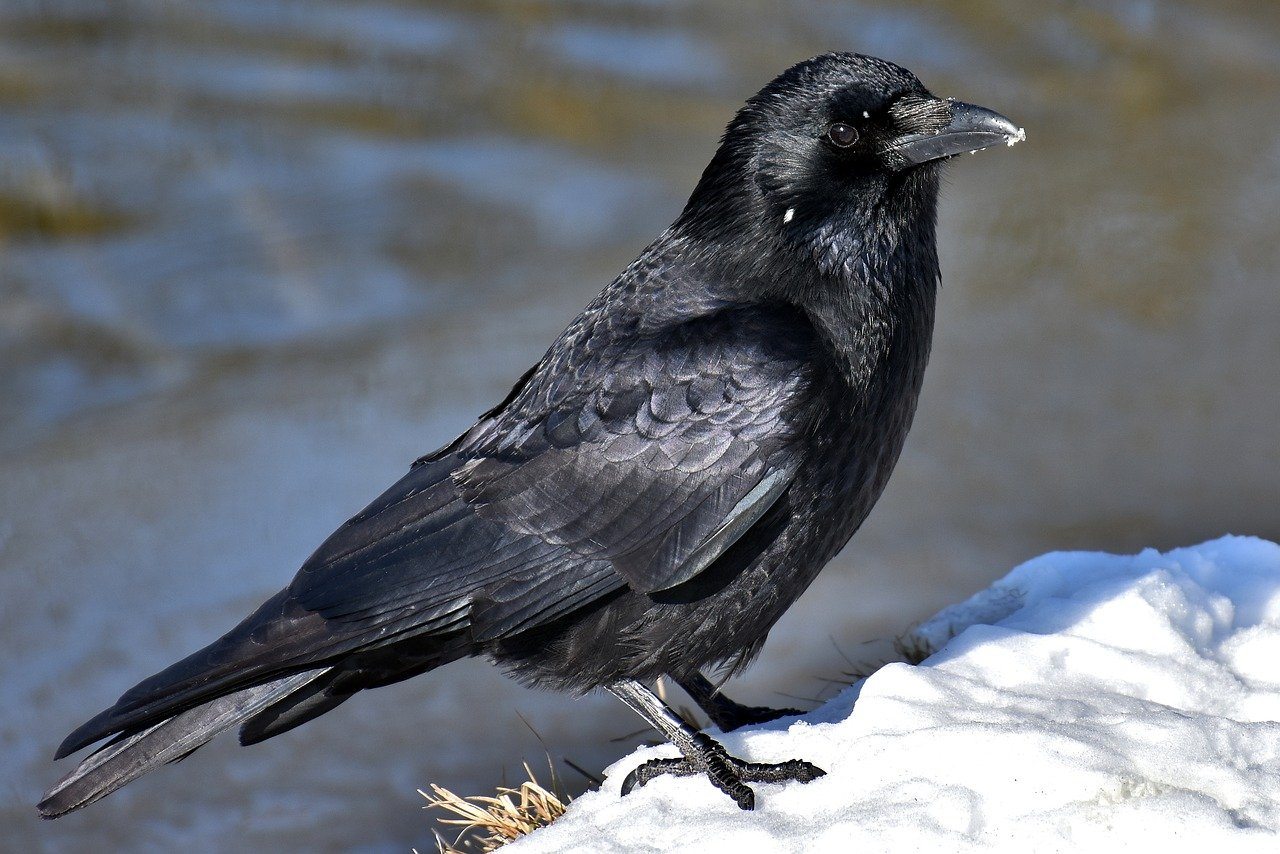
3. Become an Accredited Wildlife Rehabilitator
If you want a more serious way to be deeply involved with crows and other wildlife, you could become an accredited wildlife rehabilitator. You could even work specifically and exclusively with crows if you so desire. Following this path is a major life choice and will take a lot of work and sacrifice, but if you’re dead-set on getting close to crows, this is probably the best way to do it.

Conclusion
Crows are intelligent birds with friendly dispositions that endear them to many. But they make terrible pets for a variety of reasons. A crow kept as a pet will become depressed in confinement, as they are away from their friends and family and lack the space, exercise, and mental stimulation necessary for their health. You’ll also be at risk of federal felony charges for keeping wildlife illegally.
It’s best to just befriend your local crows at the park or pick a career that enables you to rehabilitate them. But whatever you do, don’t attempt to capture a crow and keep it as a pet. The consequences could be severe.
Featured Image Credit: Pixabay
Contents
- Are Crows Good Pets?
- The 7 Things You Must Know About Crows as Pets
- 1. Crows Are Wild Animals
- 2. They Need to Sunbathe
- 3. It’s Illegal in Many Countries
- 4. Crows Are Social Birds
- 5. They Are Unhappy in Captivity
- 6. They Would Need a Massive Cage
- 7. Medical Care Is Near Impossible
- What If You Find an Injured or Abandoned Crow?
- What to Do Instead of Keeping Crows for Pets
- 1. Befriend Your Local Crows
- 2. Volunteer With Wildlife Protection Services
- 3. Become an Accredited Wildlife Rehabilitator
- Conclusion
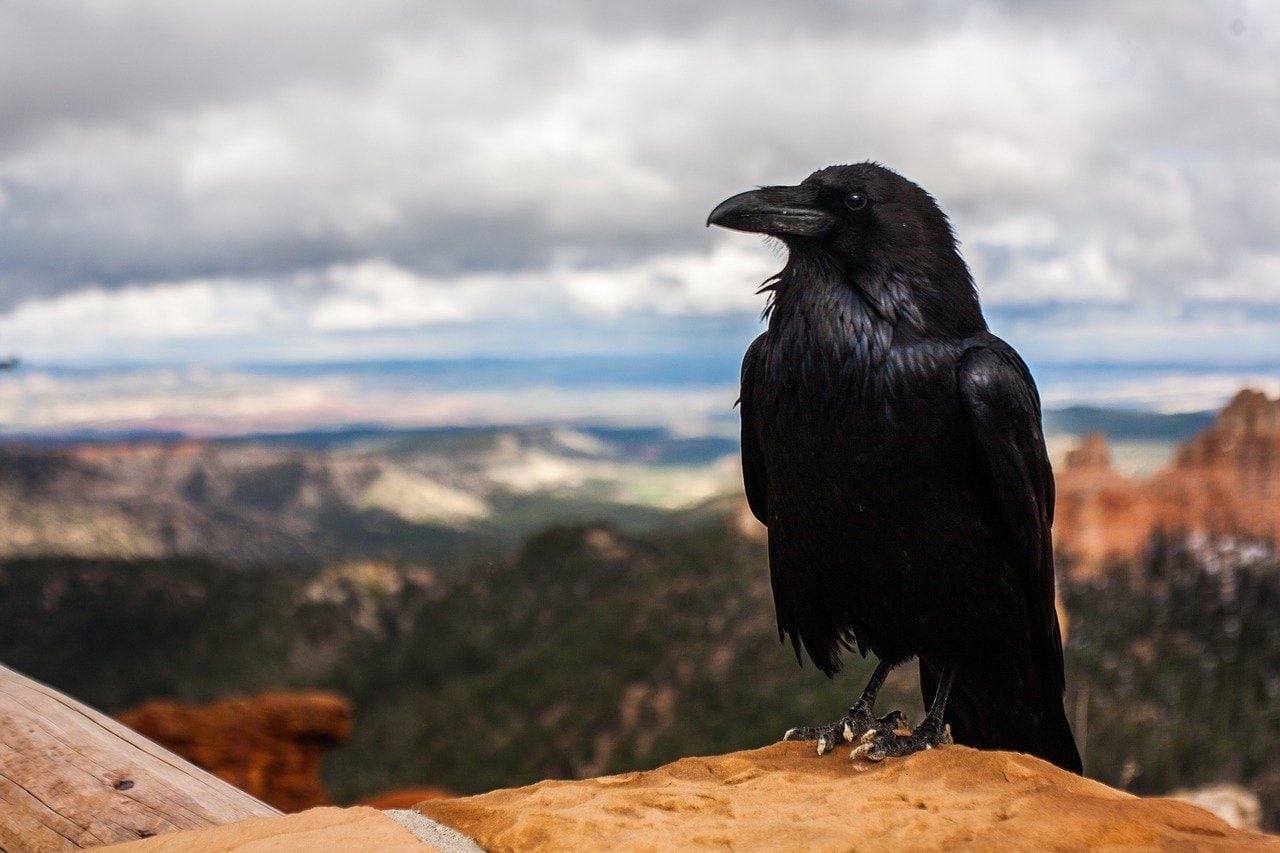






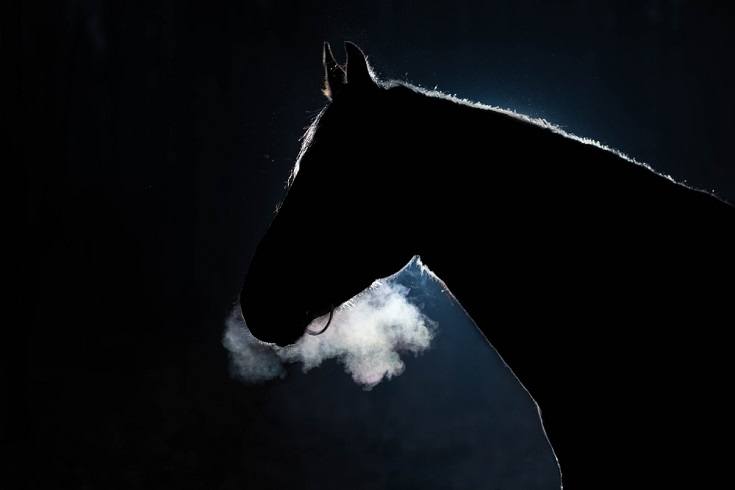
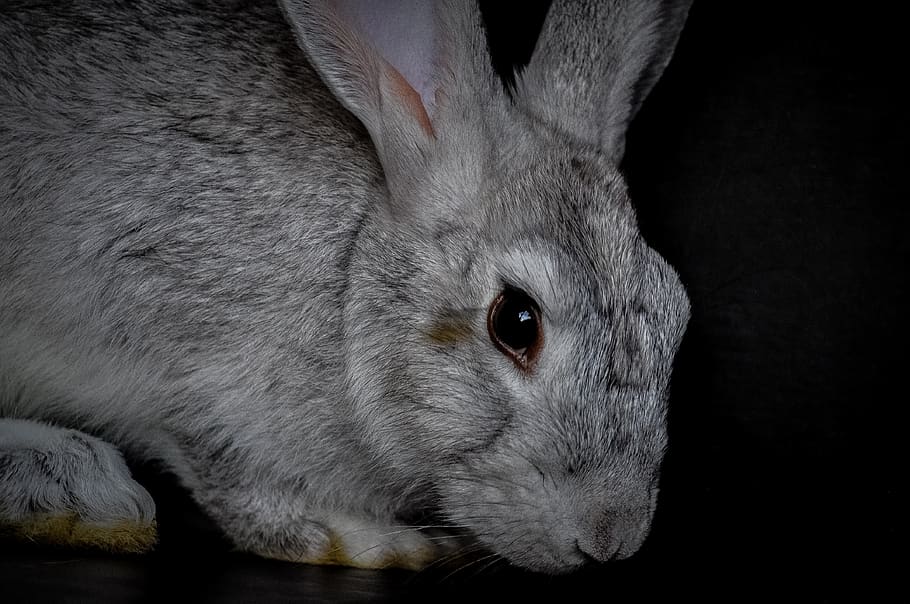


3 Responses
Imma keep the crow hehe
Dear Lauren,
thank you for your comment. As far as we understand, you are most probably joking, which is alright. However, as animal and pet lovers, we still feel obligated to point out, that keeping a crow is not only a bad idea for the crow itself, but it is also highly illegal. Everyone who decides to keep a crow as a pet is getting themselves into risk of being prosecuted on a federal level. Please, keep that in mind.
Interesting line of reasoning for Crows. I can’t help but wonder where it was when it came to let’s call it slavery?